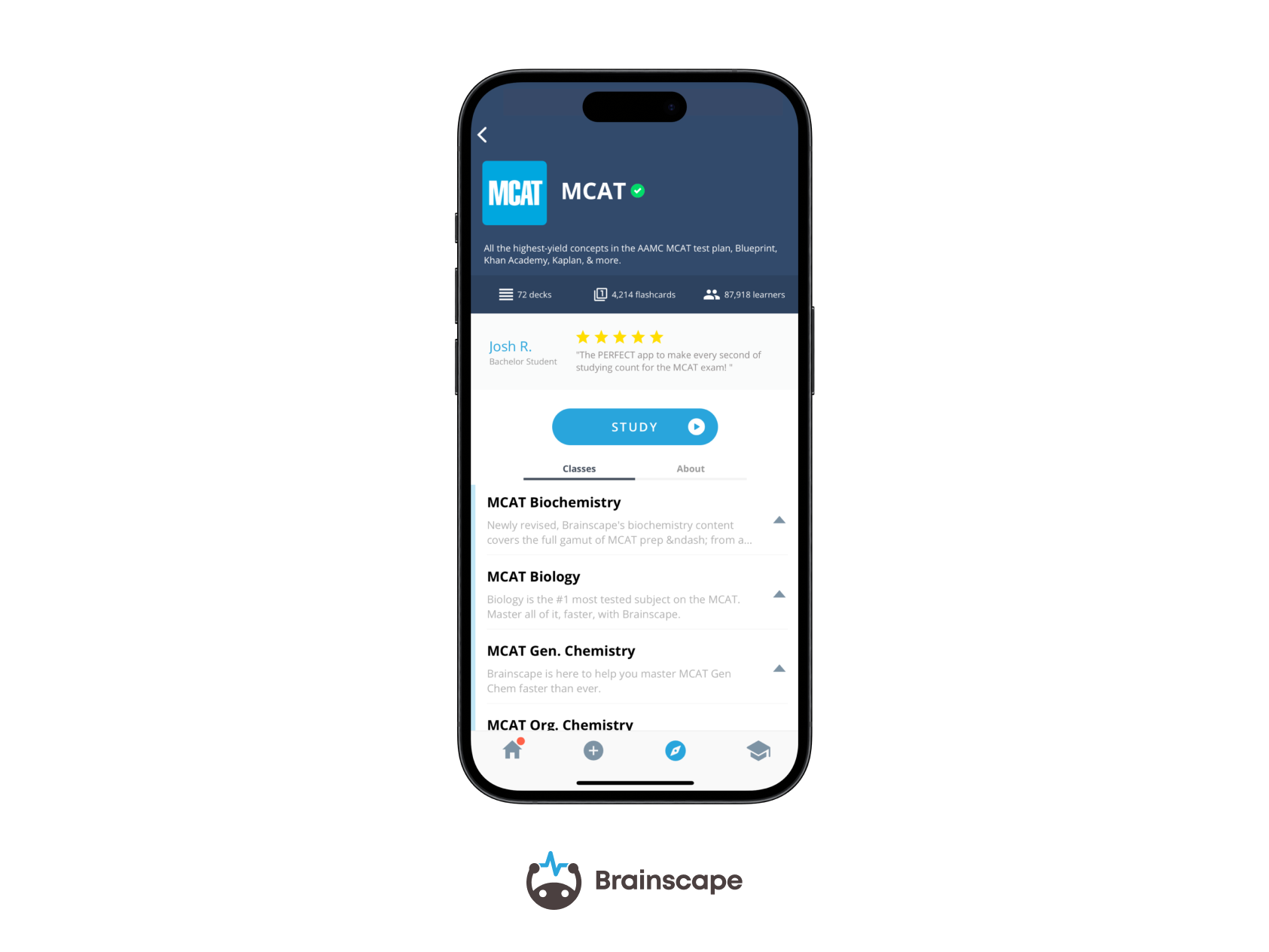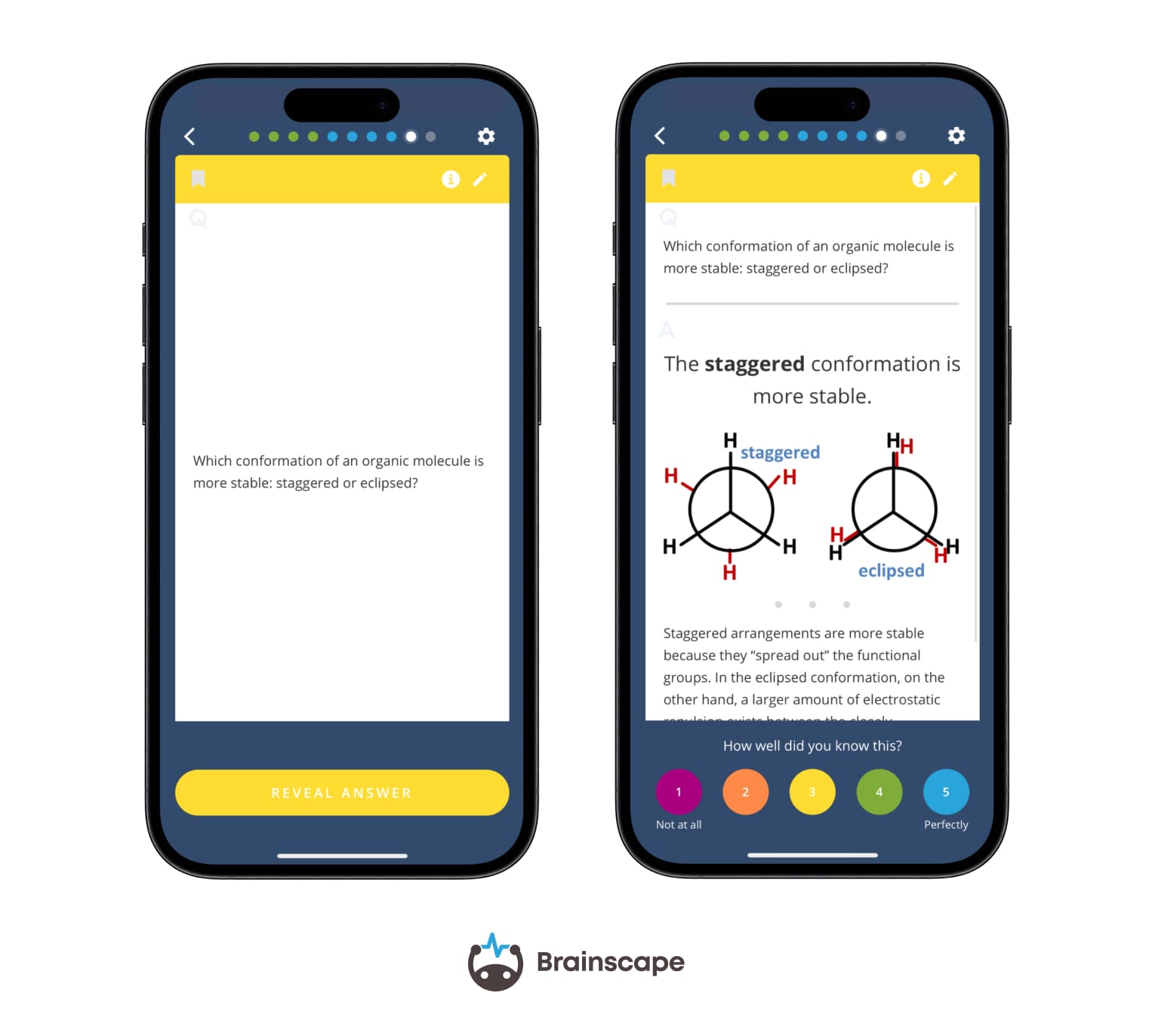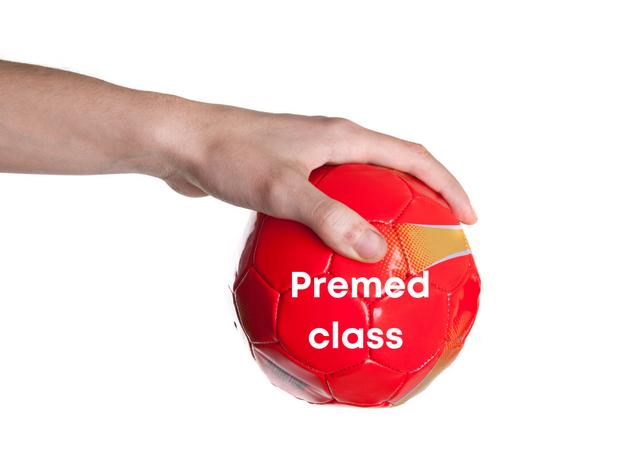Normally, we would start such an article with an anecdote or some elaborate description of a common premed problem, but this particular topic can be really scary. So we’re going to cut to the chase and tell you, without further ado, that dropping premed courses is not the end of the world.
Plenty of people sitting in medical school right now, or poring over patient charts in their white coats, dropped premed courses. So, there you have it! Whether you’ve already dropped a class or two, are considering dropping a class, or are just scared about the possibility for your future self, allow your panic to be assuaged.
Now, let’s talk about the details of dropping premed courses: when you should do it and what it could possibly mean for your studies, career, and life.
Dropping A Class (Especially A Premed Course): What Does It Mean?

Put simply, dropping a class is the decision to stop taking a course that you’ve already started attending or are at least enrolled in. This is usually motivated out of the fear that the demands of this class (especially premed courses) will negatively affect your performance in your other courses. In turn, this might damage your final grade to such an extent that it compromises your medical school application.
At most U.S. colleges, you can drop any course (even a premed course!) very early in the semester, and no note would be made on your transcript. It’s as if you never took the course at all! However, if you choose not to do this but later realize that you do need to drop the course, most U.S. colleges have a second drop deadline. If you drop before that date, it counts as “withdrawing,” and some notation—usually a W—will go on your transcript.
Can Medical Schools See That You Have Dropped A Class?
Medical schools that you apply to will see this W, so this decision carries no small amount of risk. Once this second deadline passes you by, you’re locked into the course and can’t drop or withdraw from it, except sometimes under extremely extenuating circumstances.
Before we go further, we want to emphasize that every school’s specific policies are different. If you’re even considering dropping a class, we highly recommend going online immediately and looking up the rules around dropping a class at your institution.
What's The Difference Between Impacted And Non-Impacted Courses?
As just one example of how confusing these policies can be, take UCLA, which currently has one of the largest premed populations in the country. UCLA divides its courses into “impacted” and “non-impacted” courses, where the designation of “impacted” depends on course popularity.
The rules around dropping an impacted course are different from dropping a non-impacted one. For non-impacted courses, UCLA has two drop deadlines. If you drop after the second deadline, you don’t get a W, but rather a separate transcript notation that also lists which week you dropped the course.
In contrast, at Ohio State, which also has a ton of premeds, there are six different drop deadlines depending on the length of the course you’re taking, and you can’t even drop a course with a W unless you do so with an advisor’s help.
These details are already SO different from the generic situation that we described earlier, so let this emphasize the fact that you should go online and look up your own school’s policies if you are considering dropping a class.
That being said, most policies still share enough common ground that we can talk about a few general rules and common situations.
When Should You Drop A Premed Course?

First, let’s tackle when you should drop a course before the first deadline. This is a relatively easy question, because dropping at this point doesn’t affect your transcript, but it can still be a tough choice. We recommend only dropping a class before the first deadline in four situations:
Information Overload
You realize that you’re taking way too many premed courses this semester, and your performance will dramatically suffer unless you cut back.
Overwhelmed And Unnecessary
You quickly realize in the first few class sessions that you’re way out of your depth, and the class isn’t necessary for your major or premed requirements.
Overwhelmed, But There’s An Easier Option
You similarly realize that you’re way out of your depth, and the class is required for your major or for medical school, but there’s an easier option.
This was super common at my undergrad school, USC, particularly with regard to physics. Essentially, premeds would accidentally sign up for the “physics for engineers” course when there was a separate, easier “physics for the life sciences” course for both semesters.
Alternatively, you might learn that the professor you have is the “super hard professor” and that the fun, easygoing professor teaches the course the next semester.
Extenuating Circumstances
You face a mental health emergency or death in the family—anything that makes you realize that now probably isn’t the time to be overwhelmed by premed courses.
What Are The Repercussions Of Dropping Premed Courses Before And After The First Deadline?
Even though dropping a premed course before the first deadline won’t affect your transcript, there are still a few potential repercussions to keep in mind. If you’re attending college on financial aid, specific policies may require you to take a certain number of units at a time, or may carry other requirements that could be impinged upon by your decision to drop a course.
Similarly, many colleges mandate that all of their students take a certain number of premed courses at a time to retain full-time status. Another concern is that dropping a class may throw off your course load for future semesters.
Planning Ahead For Graduation Requirements
Before making any decisions, plan out how dropping a class would affect this and the next several semesters. If the premed class you’re dropping is necessary for you to graduate or is required by medical schools, make sure that it is offered next semester or that you have another option to fulfill the requirement.
Colleges often have complex webs of prerequisites, so this is absolutely worth spending a few hours digging into, so you don’t make a mistake that haunts you later.
Dropping A Course After The First Deadline
“Should I drop a class after the first deadline?” This is where the decision can get really tough, because medical school admissions committees don’t like to see low grades, but they also don’t like to see a bunch of Ws. There is really only one unambiguous truth: dropping a course with a W is better than failing a course or even getting a D. This is always true; if you’re pretty sure you’re going to get a D, especially in a premed course, drop it.
Now, that’s not the hard question.
The Tougher Choice: W Vs. A Lower Grade
The hard question is: “Should I drop a class or get a C (or maybe a B-minus)?” Here, we enter the world of ambiguity, but that doesn’t mean we can’t make highly informed decisions. Crucial to these decisions is the need to balance GPA, which is a straightforward number, with the details on a transcript, which are less straightforward and are looked at subjectively by admissions committees.
Let’s explain what we mean by this …
When A W Might Work In Your Favor
Ws on a transcript are not factored into your GPA or your science GPA. This means that if your main concern is preserving your GPA, a W instead of a C or maybe a B-minus might be the smart option. Similarly, since Ws are always looked at subjectively by admissions committees, a W might be your best bet if you can spin it favorably.
The classic example of this is a student who gets one or even two Ws freshman year, but never drops a course again and gets all As for the rest of college. Medical school admissions committees will likely view this as someone who got their act together, and the As will result in a very favorable GPA, too.
In contrast, if you’re less concerned about maintaining GPA—say, if you’ve gotten mostly Bs already and a C won’t make much of an impact—or if getting a W plays into a negative narrative, then taking the lower grade is probably your better bet. This is true if you already have at least two Ws or if the W comes later in your college years and could be seen as potential evidence of a pattern of giving up or a downward trend.
Finally, How Many Ws Is Too Many?
Nobody can answer this question for you, but in the vast majority of cases, one W is fine and three Ws are likely to raise red flags. This doesn’t mean you should give up hope, though. Rather, if you’re teetering on the edge of your third W or have three already, we recommend talking to an advisor or other expert to get input on your specific situation.
How Can Digital Flashcards Help You Stay On Track?

As mentioned, one of the primary reasons students drop premed courses is that they are overwhelmed by the volume of information they have to learn, and as a result, they fear for their final grades. But there is a tool that is proven to increase USMLE and MCAT scores: digital flashcards.
Digital flashcard apps like Brainscape or Anki engage your brain in active recall, which means coming up with an answer by yourself instead of recognizing it from a list of options or passively reading notes. This increases learning efficiency and allows you to build confidence through the steady wins of mastering one flashcard at a time. In fact, digital flashcard study not only increases the confidence of medical students but also reduces anxiety and stress!

Flashcards also facilitate spaced repetition, which is the practice of returning to a concept in order to reinforce the memory before your brain forgets it. Hundreds of studies have shown that spaced repetition enormously improves memorization efficiency. Digital flashcard apps like Quizlet or Brainscape have spaced repetition algorithms that automate the process of figuring out which card to resurface next.
These adaptive learning algorithms focus on your weaknesses, helping you to bring your knowledge up to speed much quicker. By taking out the logistics, they make learners more likely to study. Adaptive algorithms for spaced repetition are proven to specifically increase the learning speed of medical students.
With these benefits in tandem (and more), digital flashcard apps such as Mochi or Brainscape can serve as the ultimate study tool to help you perform well at all of your premed courses. And while dropping a class may become a smart (or unavoidable) decision for you at some point, adding flashcards to your study can certainly help minimize the need for this drastic recourse.
Additional Reading
- MCAT Courses Vs. Premed Classes: What You Need To Know!
- How To Study For The MCAT More Efficiently
- How To Do Well On The MCAT … The First Time!
References
Bjork, R. A., & Bjork, E. L. (2020). Desirable difficulties in theory and practice. Journal of Applied Research in Memory and Cognition, 9(4), 475–479.
Cole, R., McHugh, D., & Netter, F. H. (2017). Assessing emotional stress, active recall and digital spaced‐learning media in the Study of Thoracic Gross Anatomy by Medical Students. The FASEB Journal, 31(S1). https://doi.org/10.1096/fasebj.31.1_supplement.580.7
Deng, F., Gluckstein, J. A., & Larsen, D. P. (2015). Student-directed retrieval practice is a predictor of medical licensing examination performance. Perspectives on Medical Education, 4(6), 308–313. https://doi.org/10.1007/s40037-015-0220-x
Kerfoot, B. P. (2010). Adaptive spaced education improves learning efficiency: A randomized controlled trial. Journal of Urology, 183(2), 678–681. https://doi.org/10.1016/j.juro.2009.10.005
Orbell, S., & Verplanken, B. (2010). The automatic component of habit in health behavior: Habit as cue-contingent automaticity. Health Psychology, 29(4), 374.
Xu, J., Wu, A., Filip, C., Patel, Z., Bernstein, S. R., Tanveer, R., Syed, H., & Kotroczo, T. (2024). Active recall strategies associated with academic achievement in Young Adults: A systematic review. Journal of Affective Disorders, 354, 191–198. https://doi.org/10.1016/j.jad.2024.03.010
